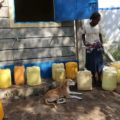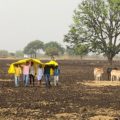Liquid Petroleum Gas Access and Consumption Expenditure: Measuring Energy Poverty through Wellbeing and Gender Equality in India
Working paper by Dhilanveer Teja Singh Bahi, Jouni Paavola on 22 Aug 2023
Despite the acceleration of electrification in India, many communities still suffer from the direct and indirect effects of energy poverty. This paper investigates whether access to liquified petroleum gas (LPG) and consumption expenditure can be used as measures of energy poverty in India, with a particular focus on gender equality.









